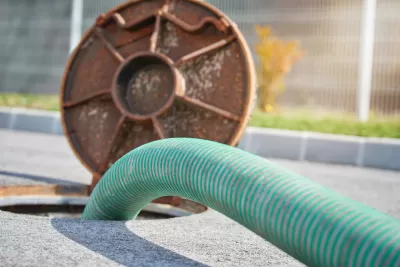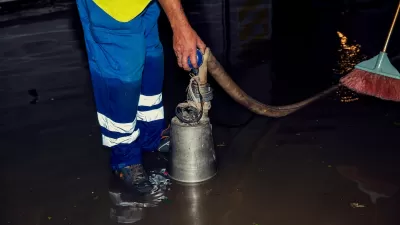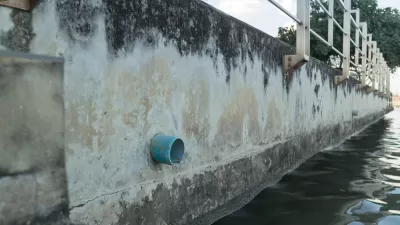Low-income Alabama residents who can't afford the cost of a functional septic tank run the risk of heavy fines and even arrest in addition to extremely unsafe conditions.

In a piece adapted from the New Yorker print magazine, Alexis Okeowo describes Alabama residents' lack of access to functional sewers and septic systems. Dense Black Belt soil, the namesake of the area, causes trouble for traditional septic tanks, which house waste until it can be broken down by microbes. Because of the difficulty in maintaining such a septic system, Okeowo says, 40% or more households don't have a proper sewage disposal system.
"The state of Alabama mandates that anyone who is not on a municipal sewer line—which includes eighty per cent of Black Belt residents—invest in a private waste-management system," writes Okeowo. "In Alabama, not having a functioning septic system is a criminal misdemeanor. Residents can be fined as much as five hundred dollars per citation, evicted, and even arrested," says Okeowo, highlighting the gravity of the situation.
The systems, which can cost up to $20,000 are not always easily afforded by some Alabama residents. "Floods carry sewage across people’s lawns and into their living areas, bringing with it the risk of viruses, bacteria, and parasites that thrive in feces. Studies have found E. coli and fecal coliform throughout the Black Belt, in wells and in public waters," writes Okeowo.
Okeowo's piece tells the story of the activism of Catherine Coleman Flowers to respond to the public health threat that are, "to some officials," Okeowo writes, "as much a matter of personal responsibility as of public health," noting their shirking of responsibility. Instead, Flowers sees the lack of comprehensive sanitation solutions as a product of a history of inequity in the region. "During the past several years, Flowers told me, she and her staff have helped a dozen families move into safer homes."
FULL STORY: The Heavy Toll of the Black Belt’s Wastewater Crisis

Study: Maui’s Plan to Convert Vacation Rentals to Long-Term Housing Could Cause Nearly $1 Billion Economic Loss
The plan would reduce visitor accommodation by 25% resulting in 1,900 jobs lost.

Alabama: Trump Terminates Settlements for Black Communities Harmed By Raw Sewage
Trump deemed the landmark civil rights agreement “illegal DEI and environmental justice policy.”

Why Should We Subsidize Public Transportation?
Many public transit agencies face financial stress due to rising costs, declining fare revenue, and declining subsidies. Transit advocates must provide a strong business case for increasing public transit funding.

Paris Bike Boom Leads to Steep Drop in Air Pollution
The French city’s air quality has improved dramatically in the past 20 years, coinciding with a growth in cycling.

Why Housing Costs More to Build in California Than in Texas
Hard costs like labor and materials combined with ‘soft’ costs such as permitting make building in the San Francisco Bay Area almost three times as costly as in Texas cities.

San Diego County Sees a Rise in Urban Coyotes
San Diego County experiences a rise in urban coyotes, as sightings become prevalent throughout its urban neighbourhoods and surrounding areas.
Urban Design for Planners 1: Software Tools
This six-course series explores essential urban design concepts using open source software and equips planners with the tools they need to participate fully in the urban design process.
Planning for Universal Design
Learn the tools for implementing Universal Design in planning regulations.
Smith Gee Studio
Alamo Area Metropolitan Planning Organization
City of Santa Clarita
Institute for Housing and Urban Development Studies (IHS)
City of Grandview
Harvard GSD Executive Education
Toledo-Lucas County Plan Commissions
Salt Lake City
NYU Wagner Graduate School of Public Service





























